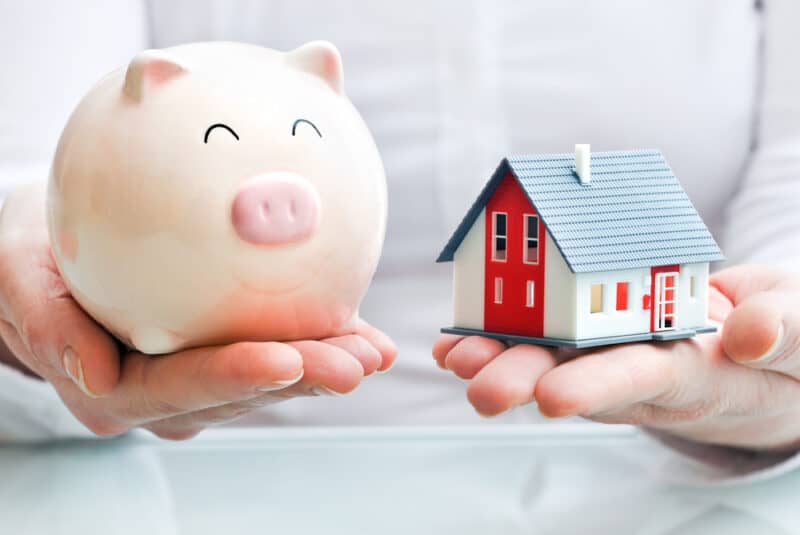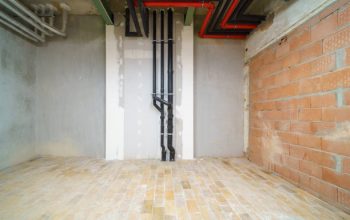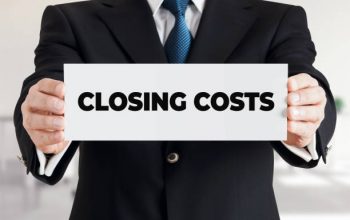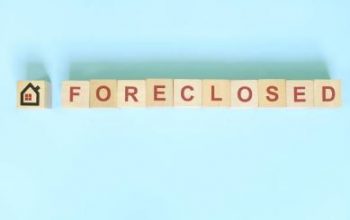Do you aspire to one day own a home? In that case, you might be wondering how much cash you’ll need to set aside before purchasing one. Of course, each individual’s total expenditure varies greatly. You can calculate the total amount you’ll need before entering the real estate market by using the discussion that follows, which breaks down the various costs.
Table of Contents
How To Prepare To Buy A Home?
Once you’ve addressed the major query of how much cash is required to purchase a home, it’s time to address the following: how to get ready to make the actual purchase. Here are some actions to take in order to get ready to buy a house.
1. Check Your Credit
Your creditworthiness is assessed by mortgage lenders using a variety of factors, including your credit score.
Additionally, a lot of websites now provide free credit scores; your bank may be one of them. Try to improve your credit before applying for a mortgage if it is on the lower side.
2. Create A Budget.
To make a realistic budget, take a close look at all of your expenses, including your car payment, any outstanding student loans, monthly expenses for food and transportation, utilities, and more. The 28/36 percent rule states that you should spend no more than 28% of your gross monthly income on housing and no more than 36% on debt overall, including your mortgage.
3. Save For A Down Payment.
As a down payment, you’ll typically need at least 3% of the house’s purchase price. But keep in mind that in order to avoid paying for mortgage insurance, you’ll need to put down at least 20%. But don’t let the price of the mortgage insurance intimidate you. Once you’ve built up 20% equity in the home through payments and value growth, you’ll be able to get rid of that annoying fee with a conventional loan.
4. Shop For A Lender.
When looking for a home, it can be helpful to have your mortgage preapproved by a lender. It not only helps sellers see you as a more serious buyer, but it also gives you a better idea of how much house you can actually afford. To begin, do some research and request quotes from at least three lenders.
5. Be Open To Negotiating.
Although home prices may be rising, your budget shouldn’t necessarily follow suit. It might be necessary for you to make a deal with yourself in order to purchase a home, such as being willing to forgo the need for a finished basement or a garage. Keep in mind that you can always work to make upgrades and improvements after you purchase the property.
How Much Money Should I Save Before Buying A House?
For those looking to purchase a home, having some cash on hand is essential, but how much cash is actually required? Some prospective home buyers think they’ll never be able to purchase a home because they can’t afford a 20% down payment. The truth is that a lot less than 20% down is now required by many lenders. So how much do you need for a down payment? It might not be as much as you were told.
Home Affordability
Finding out how much house you can afford is a great place to start if this is your first time buying a home. You’ll be able to obtain a reasonable estimate of what your down payment might be once you take this into account.
Preapproval will give you a better idea of what you can afford if you’re planning to buy soon. Since the down payment is typically calculated by subtracting a percentage of the home’s purchase price, this will also give you a better idea of how much money you need to save for a down payment.
3% Or Less
You might be eligible for a conventional loan with as little as 3% down, depending on your income and credit score. If you are approved for the U.S. You can even purchase a home with no down payment at all if you use a Department of Agriculture (USDA) or Department of Veterans Affairs (VA) loan.
You’re not completely out of options if you don’t meet the requirements for a USDA or VA loan. First-time homebuyers can receive assistance in some states. As you start setting aside money for a down payment, look into the programs your state offers to help with the cost and determine whether you qualify.
The 20% Myth
Why do so many people think that 20% down is required to purchase a home? The rule requiring private mortgage insurance (PMI), which the majority of lenders and mortgage investors have, is where the 20% down myth originates.
Private mortgage insurance might be necessary if your down payment at closing is less than 20%. If you don’t pay back the loan, this safeguards the lender and mortgage investor. Even though it will save you money in the long run, a 20% down payment is not necessary to purchase a home.

Don’t Forget These Additional Costs When Saving To Buy A Home
The cost of buying a home is substantial. Besides the down payment, you’ll need to save more. Listed below are a few unforeseen expenses that could sideline your monthly budget:
Private Mortgage Insurance
This might be required if you have a bad credit history or are unable to put down a sizable down payment. If you can’t afford to put 20% down in cash, you’ll probably have to pay for this. You should check with your lender to see what options they offer. You must pay PMI if you borrow more than 80% until you have 20% equity and can refinance.
Closing Costs
These charges pay for the cost of the property’s closing papers. They also cover things like surveys, legal fees, and title searches. If your lender is unwilling to include these transaction costs in your loan, it is best to ask them how much they charge because these closing costs vary by state.
What Is Included In Closing Costs?
Closing costs include a variety of charges made by your lender and other businesses involved in approving your loan and concluding the sale, including:
- An appraisal fee
- Credit report fee
- Origination fee
- Application fee
- Title search fee
- Title insurance
- Underwriting fee
Since closing costs differ from lender to lender, you should pay close attention to the origination fee and underwriting fee to see if there are any areas where you can cut costs. It’s important to remember that you’ll probably incur some extra costs on the closing day that aren’t regarded as closing costs. Prepaids include things like property taxes and homeowner’s insurance premiums. Additionally, you will pay interest in advance on any days that are still outstanding until the end of the month. You would prepay interest through April 30 if, for instance, you closed on April 20.
Can you Avoid Closing Costs?
While closing costs cannot be avoided, they can be postponed rather than paid in full. Ask your lender about no-closing-cost options if you don’t have the cash on hand to pay for closing costs. Some lenders will incorporate the costs into the total loan. Just be aware that doing so will end up costing you more in the long run because you’ll have to pay interest on the extra money.
In addition to closing costs and prepaid, you should set aside money for moving costs, furniture, repairs, storage, and any other costs you may incur as you settle into your new home.
Homeowners Insurance Premiums
Mortgage insurance premiums are needed for certain loans. These can be paid once per month and guard against property damage for the lender and owner. Additionally, it aids in lowering risks for other investors or stakeholders, including the neighborhood, homeowners association (HOA), and community.
Property Taxes
Based on where you live and the assessed value of your home, property taxes can range from 0% to 10% or even higher. When determining how much money to save up before buying a home, it’s critical to take these costs into account. The escrow account is frequently used to pay real estate taxes, but this can change depending on your lender and state.
Initial Down Payment
the sum you contributed initially to the purchase. According to the type of loan and interest rate, this sum varies. Lower monthly payments are typically the result of a larger down payment.
Homeowner Association Fees
Homeowner association dues are common for properties within communities. These costs go toward things like security, landscaping, and common area upkeep. These charges may add up quickly depending on the size of the neighborhood, the number of residences, and other elements. These costs are typically not rolled into the homeowners’ monthly mortgage payment and can frequently be paid monthly or quarterly.
Maintenance Costs
Owning a home entails expenses. Budget for maintenance, utilities, lawn care, snow removal, repairs, and upkeep in addition to the mortgage. Many people don’t understand how expensive home ownership can be until they actually move in. It’s crucial to keep an eye on these potential expenses and account for them in your monthly housing budget.
Moving Expenses
Make sure you can afford to move all your belongings before you move. A mover’s fee may be expensive if you aren’t doing it yourself. During your transition, you might also want to think about renting a storage space. Plan ahead because moving expenses can add up quickly.
Appraisal Fees
When a lender wants to confirm the value of the property, they must pay an appraisal fee. Every purchase is typically preceded by an appraisal to ensure the property is worth the amount the bank is lending.
Starter Home Repair Fund
You’ll probably need to make some repairs to a starter home before moving in. This might include dripping pipes, cracked walls, etc. Budgeting for these repairs is crucial because, in the first few months after moving in, they might deplete your emergency fund.
Decoration And New Furniture
After you move in, you’ll want to start decorating and may need to purchase new furniture as well. In order to furnish a new home, many people spend thousands of dollars. However, if you lack the money and are unable to obtain gifts for free, you might have to make do for a while with blow-up furniture.
Home Inspection
Before deciding whether to buy a house outright, you should have a home inspection performed. You can find potential issues that could lower the value of the house with the inspector’s assistance. They’ll also inform you if anything needs to be fixed or replaced.
Tips To Build Your Down Payment Fund
Regardless of how much you intend to put down when you purchase a home, you will need to work hard to come up with that significant upfront expense. To increase your down payment savings, take into account the following advice:
- Find every expense you can reduce: Spending less will enable you to save more. Can I revoke my cable subscription? Are you paying too much for your cell phone plan? Should you go out to eat less frequently? To find ways to reduce your spending, look at your weekly and monthly expenses.
- Look for assistance locally: Make sure to research first-time homebuyer initiatives in the city and state where you intend to purchase. If you meet certain low- to moderate-income requirements, you may be eligible for grants or loans with no interest for your down payment costs.
- Ask for help: A gift can be used as a down payment if you have a family member or close friend who has the cash and cares about you enough to give it to you without conditions. Plan to submit a gift letter from the friend or relative confirming that it is truly a gift and outlining why you won’t be required to repay it to the lender as they will want confirmation that this is the case.
- Utilize your savings: Every extra penny matters, whether it’s in CDs or high-yield savings accounts. Compare interest rates on possible places to park your money instead of saving in a bank account that offers little to no interest. Regardless of the tool you choose, make sure you will have access to the funds when you need them. A savings account might be your best option, for example, if you intend to purchase a home within the next 12 months.
You should have a well-thought-out plan in place if you want to save for a home. But first, make sure you are aware of the down payment requirement. Although many people think they need a 20% down payment to buy a house, you can actually buy a house with as little as 3% down.
There are numerous ways to save money for a down payment, regardless of whether you have already begun saving for a home or are beginning to do so. Start by putting together a household budget that calls for setting aside a specific sum of money each month to use as a down payment.
You might also want to think about getting a second job, switching to a more lucrative career, or downsizing to save more money. You can also increase your savings by paying off debt, enlisting the assistance of friends and family, or renting out extra space.



